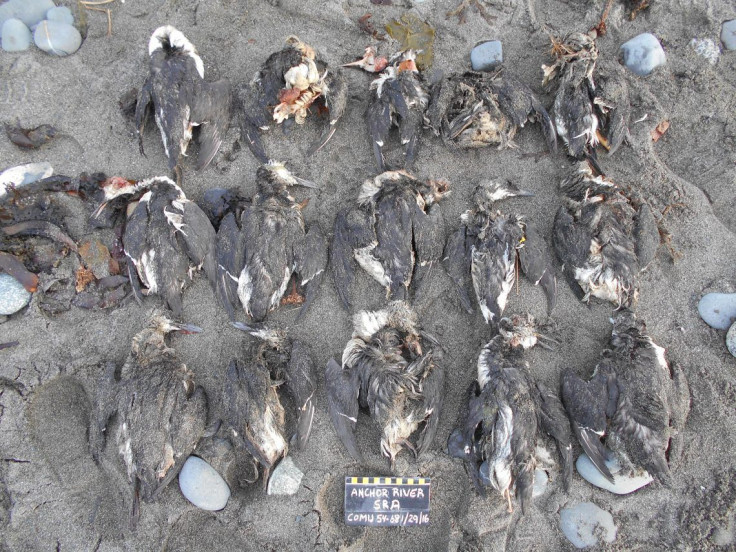Around A Million Birds Estimated Dead After A Hot ‘Blob’ In Pacific Ocean, Study Reveals

KEY POINTS
- A million birds die and wash up on coasts
- Researchers blame warm water patch in the Pacific for this
- Birds commonly known as ‘Murre’ most affected
A group of researchers from the University of Washington estimated that around one million seabirds died in the Pacific region after a hot water “blob” caused an imbalance in the ecosystem. The study was published Wednesday.
The researchers had taken into account the immense number of sea birds, preying on fish, had died and washed up across the coast in Alaska and California in the United States. The birds, more commonly known as the Murre, had a high mortality rate.
The study found out that the deaths were caused due to a shift in temperature of the area from cold to hot and was termed by the scientists as the “blob”. A gigantic section of hot water had severe effects on the ecosystem of the place. The section of about 1000 miles of water was found out to be around three to six degrees hotter than the rest of the area.
The hot water in the area caused an imbalance in the ecosystem as the algae that act as food for several organisms, began to reduce in the hot temperature. The reduction caused the formation of another form of algae which can be deadly for animals and was considered a reason for the death of the birds. Other animals that were also affected due to the change in temperature included sea lions, tufted puffins, and baleen whales.
The lead researcher in the project, John Piatt, stated during a press release, “The magnitude and scale of this failure has no precedent. It was astonishing and alarming, and a red-flag warning about the tremendous impact sustained ocean warming can have on the marine ecosystem.”
The scientists reported the "blob" had formed off the coast of New-Zealand and had become larger than the size of the state of Texas with 400,000 square miles. They added that it was uncommon for a warm water patch to cover such area but it had become common due to climate change.





















